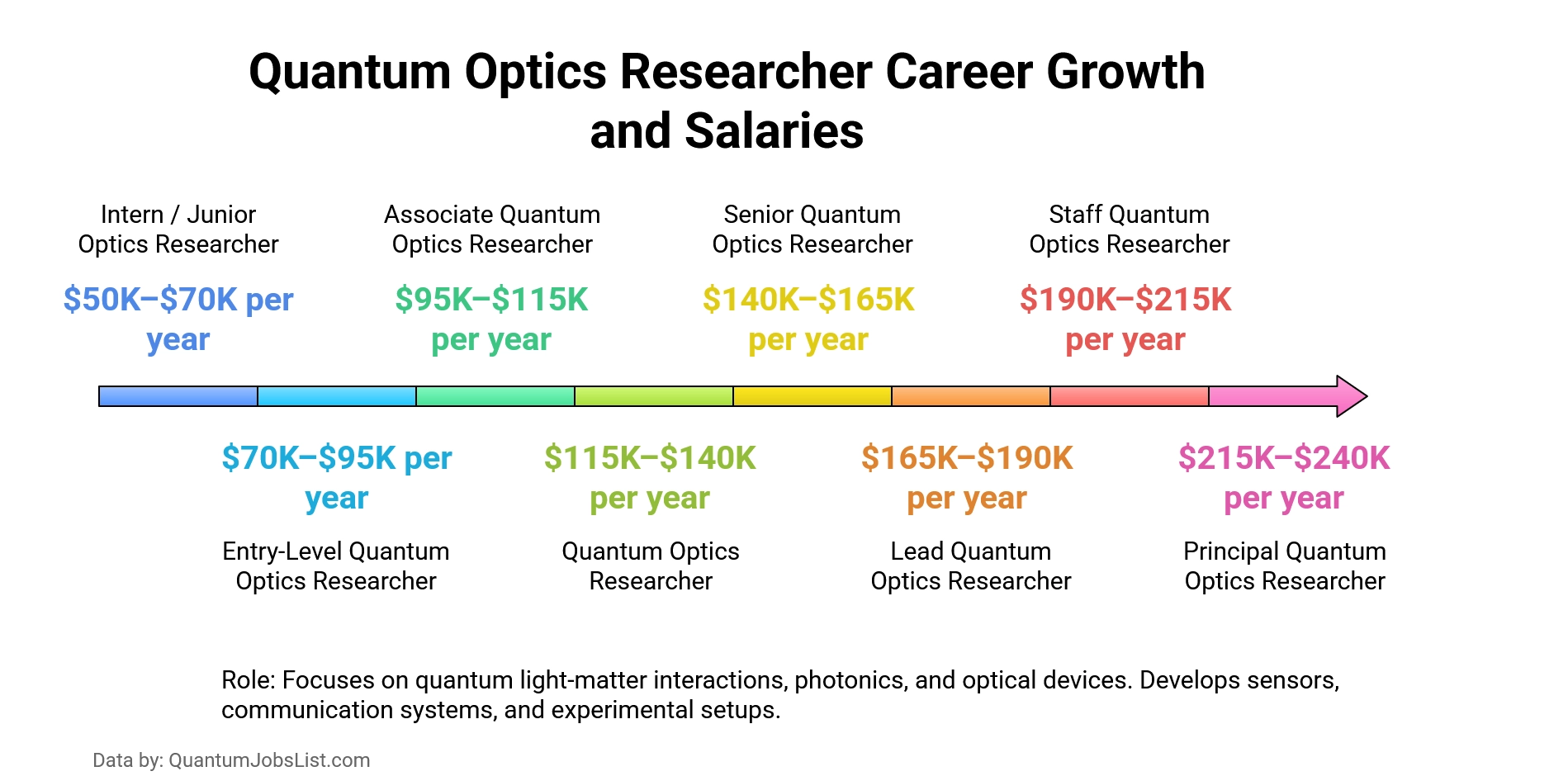A researcher in quantum optics works on photonic quantum systems, builds sources of quantum light, and studies quantum phenomena by employing different techniques in optics. They use lasers, single-photon detectors, and optical cavities to create and manipulate the light quantum states for use in computing and communication, and for other applications.
Quantum optics researchers now make $72,000 - $145,000 , depending on the field and institution, and their specialization. The importance of the specialization lies in the use of qubits, which are photons, and the importance of the light and the quantum interactivity. The number of quantum optics researchers globally is approximately 2,500-3,000, and they are primarily directed to the advancement of technologies for the quantum photon.
Many researchers in quantum optics are employed by PsiQuantum and Xanadu, companies specializing in photonic quantum computers.They are joined by other researchers from the universities and national labs to work on the scalable light-based quantum systems, which is the field of quantum optics.

What is the average base salary?
Min. Qualifications
What You Need to Know
What qualifications are needed to become a Quantum Optics Researcher?
A PhD in Physics, Optics, or Photonics is required. Experience in laser systems, single-photon detectors, optical experiments, and knowledge of quantum mechanics and electromagnetism are nice to have.
What does a Quantum Optics Researcher do?
A Quantum Optics Researcher studies quantum properties of light, and develops single-photon sources. They also investigate photonic quantum systems for computing and communication using lasers and optical equipment.
What is the average salary for a Quantum Optics Researcher?
Quantum Optics Researchers earn $72,000-$145,000 globally. American positions averaging $115,000 a year. European roles around €99,000, and remote positions at $110,000 annually.
Why is photonics important in quantum computing for Quantum Optics Researchers?
Photonic qubits operate at room temperature, travel long distances for quantum networks, and resist decoherence better than other qubit types. This makes Quantum Optics Researchers crucial for scalable quantum systems.
More Quantum Job Salaries
Cryogenic Engineer (Quantum Systems)
Builds ultra-low temperature systems for quantum hardware, earning $90,000-$185,000+.

Quantum Control Engineer
Designs and tunes quantum hardware control systems, earning $95,000-$190,000+.

Quantum DevOps Engineer
Manages quantum infrastructure and pipelines, earning $90,000-$180,000+.

Quantum Solutions Architect
Designs enterprise-ready quantum systems, earning $100,000-$210,000+.

Quantum Product Manager
Leads quantum product vision and delivery, earning $100,000-$220,000+.

Quantum Technical Writer
Creates documentation, and technical content for quantum computing products and research.


.svg)
.svg)

